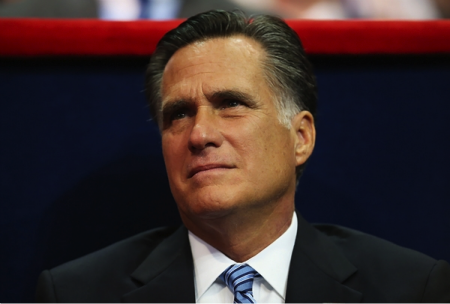
Could the Mitt Romney factor affect the 2013 Detroit mayoral race? President Barack Obama defeated Governor Mitt Romney by a larger margin than Former President George W. Bush did over Senator John Kerry. The Mitt Romney factor opened up a plethora of issues concerning the electorate similar to those that could decide the upcoming mayoral race in Detroit.
If Mike Duggan or Geoffrey Fieger decides to enter the 2013 mayoral race in Detroit as expected, it could hypothetically ignite the black vote behind one candidate who acknowledges the Mitt Romney factor and its influence. Potential African-American leaders Mayor Dave Bing, Benny Napoleon, Lisa Howse, Fred Durhal, Jr., Krystal Crittendon, Hansen Clarke, Sharlonda Buckman, and Roi Chinn and others planning to announce by the May 2013 filing deadline may benefit.
The City of Detroit is 82.7% black with a population of more than 500,000. What makes the Mitt Romney factor so unique is that he managed to mobilize close to the entire African-American vote in the country behind sitting President Barack Obama (98-100%). If the Mitt Romney factor persists, it could mean that the entire African-American vote could mobilize under one black candidate because of similar issues in the Detroit mayoral race. During the November 2012 presidential election, 289,900 Detroiters voted, and more than 81,000 by absentee ballot, which played a major role in re-electing the first black president, Barack Obama, to office.
Corporate vs. Community
Mitt Romney carried the flag of corporate interest and the 1%, which could directly affect wealthy candidates entering the race. The perception of corporate influence or takeover could enhance the same fears in voters during the Detroit mayoral race as in the recent presidential election.
Class vs. Underserved
Mitt Romney was part of the elite class and was raised among the privileged. Most Detroiters were raised, as members of the working class, for which opportunities do not exist, and, at the same time, remain completely underserved. The extreme conditions of Detroit—high crime, unemployment, homelessness, and extreme poverty rates—could play a major role in identifying a candidate who can relate and is in touch.
Carpetbagger vs. Native
Because of the lack of visionary leadership in Detroit, outsiders see a window to exploit the City’s severe talent and leadership drain. Detroit has not groomed or properly succeeded in developing and nurturing new political talent and leadership. There is no success with succession. Detroiters are looking to wrap its arms around someone who has seen Detroit through their eyes; someone who can be trusted by demonstrated leadership and can relate to the everyday struggles and the current lack of vision for the city. Detroiters are desperately waiting for someone—homegrown and raised—to come forward and lead as one of their own.
Divisive vs. Unifier
The 2013 Detroit mayoral race could end up being divisive, versus unifying, because of the entry of certain candidates. Divisive politics have always been the center of attention in important elections. Which candidate will look to unify Detroit and bring the community together? This may be the first time in Detroit mayoral election history that all major clergy, community leadership, organized labor, and black businesses mobilized behind one candidate. Watch to see where the pendulum swings. It is time for the community to come together.
47% vs. 82%
Mitt Romney’s 47 percent of the country are victims comment could have a tremendous ripple on Detroit’s 82% African-American population. It could be perceived that certain candidates do not care about or represent the interest of Detroit’s majority black population.
Trust vs. Interest
Detroiters will support a candidate they can trust. There is a famous saying, “People do business with folks they know, love, and trust.” The same applies in the next mayoral race. Voters will push the lever for a trustworthy candidate as opposed to someone backed by major corporate interest and mainstream private media. Any candidate who represents the pocket book of just corporate America and is an media darling of the mainstream press with no real communal capital will be scrutinized by the community in the next mayoral race.
Opportunist vs. Commitment
Detroit is on the rise, despite its difficulties; thus, many candidates see opportunity. Opportunity does not necessarily mean commitment. Candidates who have a vested interest in Detroit’s future should have a demonstrated track record in addressing Detroit’s concerns. The City of Detroit is not a stepping-stone for higher office, nor should it be a place for leaders who see opportunity as divergent to service. We need leadership committed to the underserved and a vision to help Detroit regain its signature prominence in the world.
The Mitt Romney factor can and will have a tremendous effect on the 2013 Detroit mayoral election. As voters in Detroit, we must be cognizant of the choices we make and the decision by which we must govern ourselves accordingly. We the people, must hold the potential elected officials accountable for their past, present, and if need be future.
“Although popular Negro leaders are now emerging, most of them are still selected by white leadership, elevated to positions, supplied with resources, and inevitably subjected to white control. The masses of Negros are suspicious toward this manufactured leader. We have to create leaders that have virtues that we can respect, who have moral and ethical principles that we can applaud.”— Dr. Martin Luther King